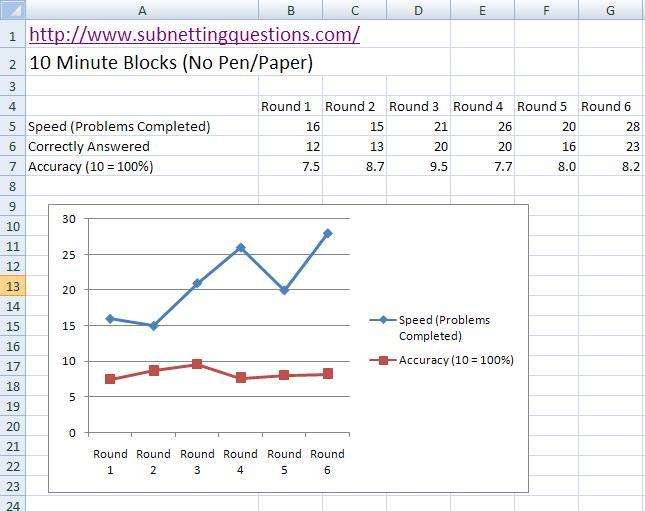I'm studying/training for CCENT. I've been trying to improve my subnetting, and today was my first actual subnetting training session. I used
subnettingquestions.com - Free Subnetting Questions and Answers Randomly Generated Online and gave myself 10 minutes to rush as many problems as I could without pen and paper. I did 6 sessions of 10 minute blocks--the results are below.
I don't see how people can take 10-15 seconds per problem and get everything correct. I mean, I'm sure it's possible, but I'm definitely not there.
Anyway, any input/advice is welcome. Also, it would be interesting to see some hard numbers from other TE members! Especially those who have passed any Cisco Exams.
Thanks for reading.
